| Coach | NA |
| Venue | Gamla Ullevi |
IFK Goteborg Trivia
IFK Goteborg predictions
Predictions for IFK Goteborg: See upcoming and historic predictions for IFK Goteborg below.
Disclaimer: Past performance does not guarantee future results. Betting involves risk; only wager what you can afford to lose. Always gamble responsibly.
IFK Goteborg Opinions
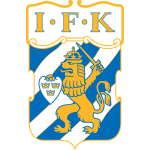 Who is the greatest IFK Goteborg player of all time?
Who is the greatest IFK Goteborg player of all time?
IFK Goteborg latest results
| 07/04 | 1 - 0 | ||
| 01/04 | 1 - 4 | ||
| 03/03 | 3 - 0 | ||
| 25/02 | 1 - 0 | ||
| 18/02 | 3 - 4 |
IFK Goteborg Injuries & Suspensions
| Players | Type | Last Update |
|---|
IFK Goteborg latest transfers
| Date | Player | From | To | Price |
|---|---|---|---|---|
| 2022-07-12 | O. Vilhelmsson | IFK Goteborg | SV Darmstadt 98 | € 1.5M |
| 2020-01-23 | S. Eriksson | IFK Goteborg | Genoa | € 53K |
| 2019-08-30 | S. Ohlsson | IFK Goteborg | FC St. Pauli | € 279K |
| 2019-07-13 | C. Starfelt | IFK Goteborg | Rubin | € 1M |
| 2019-06-20 | B. Nygren | IFK Goteborg | Genk | € 4M |
| 2019-01-08 | G. Kharaishvili | Saburtalo | IFK Goteborg | € 308K |
| 2018-01-31 | P. Dahlberg | IFK Goteborg | Watford | € 4M |
| 2017-07-17 | M. Albæk | IFK Goteborg | FC Kaiserslautern | € 100K |
| 2017-01-30 | J. Ankersen | IFK Goteborg | Zulte Waregem | € 1.5M |
| 2015-01-01 | L. Augustinsson | IFK Goteborg | FC Copenhagen | € 1.3M |
Allsvenskan standings
| Rank | Team | MP | W | D | L | GF | GA | GD | Pts |
|---|---|---|---|---|---|---|---|---|---|
| 1 |
 Malmo FF
Malmo FF
|
2 | 2 | 0 | 0 | 7 | 1 | 6 | 6 |
| 2 |
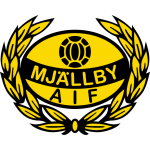 Mjallby AIF
Mjallby AIF
|
2 | 2 | 0 | 0 | 4 | 0 | 4 | 6 |
| 3 |
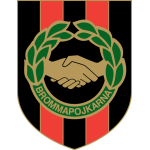 IF Brommapojkarna
IF Brommapojkarna
|
2 | 1 | 1 | 0 | 6 | 2 | 4 | 4 |
| 4 |
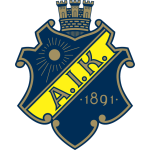 AIK stockholm
AIK stockholm
|
2 | 1 | 1 | 0 | 3 | 2 | 1 | 4 |
| 5 |
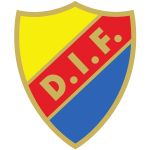 Djurgardens IF
Djurgardens IF
|
1 | 1 | 0 | 0 | 4 | 1 | 3 | 3 |
| 6 |
 Sirius
Sirius
|
1 | 1 | 0 | 0 | 3 | 0 | 3 | 3 |
| 7 |
 Hammarby FF
Hammarby FF
|
2 | 1 | 0 | 1 | 3 | 3 | 0 | 3 |
| 8 |
 Halmstad
Halmstad
|
2 | 1 | 0 | 1 | 1 | 3 | -2 | 3 |
| 9 |
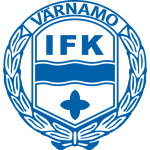 IFK Varnamo
IFK Varnamo
|
1 | 0 | 1 | 0 | 2 | 2 | 0 | 1 |
| 10 |
 IF elfsborg
IF elfsborg
|
1 | 0 | 1 | 0 | 2 | 2 | 0 | 1 |
| 11 |
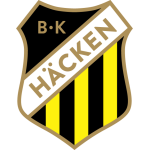 BK Hacken
BK Hacken
|
1 | 0 | 0 | 1 | 0 | 1 | -1 | 0 |
| 12 |
 Vasteras SK FK
Vasteras SK FK
|
1 | 0 | 0 | 1 | 0 | 1 | -1 | 0 |
| 13 |
 kalmar FF
kalmar FF
|
1 | 0 | 0 | 1 | 1 | 3 | -2 | 0 |
| 14 |
 IFK Goteborg
IFK Goteborg
|
2 | 0 | 0 | 2 | 1 | 5 | -4 | 0 |
| 15 |
 Gais
Gais
|
1 | 0 | 0 | 1 | 0 | 4 | -4 | 0 |
| 16 |
 IFK Norrkoping
IFK Norrkoping
|
2 | 0 | 0 | 2 | 1 | 8 | -7 | 0 |
About IFK Goteborg
IFK Göteborg, often simply referred to as Göteborg, is a renowned professional football club based in Gothenburg, Sweden. Founded on October 4, 1904, the club has a rich history and has played a significant role in shaping Swedish football. The team is known for its blue and white striped jerseys, a color scheme that has become synonymous with the club.
IFK Göteborg is one of the most successful clubs in the history of Swedish football, having won the Allsvenskan, Sweden's top-tier football league, 18 times. The club has also claimed the Svenska Cupen, the premier domestic cup competition in Sweden, on seven occasions. Göteborg's success is not limited to domestic competitions; the club has also made its mark on the international stage. It remains the only Swedish club to have won a major European competition, winning the UEFA Cup in 1982 and 1987.
The team plays its home games at the Gamla Ullevi stadium, a venue that can accommodate over 18,000 spectators. The stadium, located in the heart of Gothenburg, has been the club's home since 2009. Before this, the club played at the original Ullevi stadium, which was one of the host venues for the 1958 FIFA World Cup.
IFK Göteborg has a reputation for developing young talent, with many players going on to have successful careers both in Sweden and abroad. The club's youth academy, known as the IFK Göteborg Academy, is one of the most respected in the country. It has produced several notable players, including Pontus Wernbloom and Oscar Wendt, who have both represented Sweden at the international level.
The club's supporters, known as the "Änglarna" or "The Angels", are renowned for their passionate and vocal support. They have a longstanding rivalry with AIK and Djurgårdens IF, both based in Stockholm, which makes for heated and highly anticipated matches.
Despite facing financial difficulties and performance slumps in the early 2000s, IFK Göteborg has managed to reestablish itself as a competitive force in Swedish football. The club's commitment to youth development, combined with a strategic approach to player recruitment and a strong fan base, has helped it remain relevant in the ever-evolving football landscape.
In recent years, IFK Göteborg has made strides towards becoming a more sustainable and socially responsible club. It has implemented several initiatives aimed at reducing its environmental impact and promoting social inclusion. These efforts, coupled with the club's rich history and on-field successes, have solidified IFK Göteborg's status as a beloved and respected institution in Swedish football.















